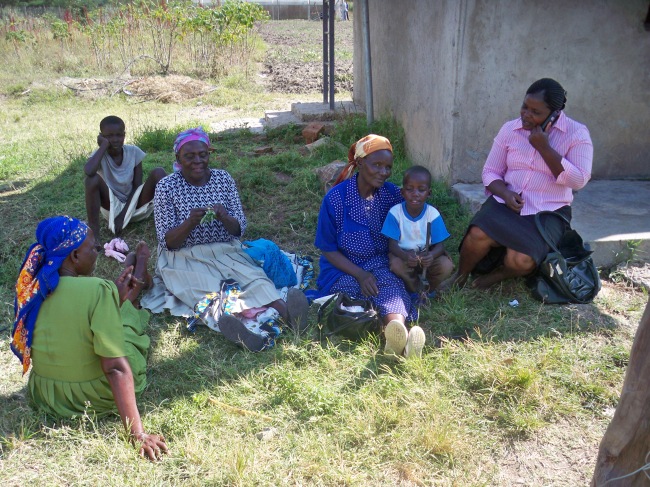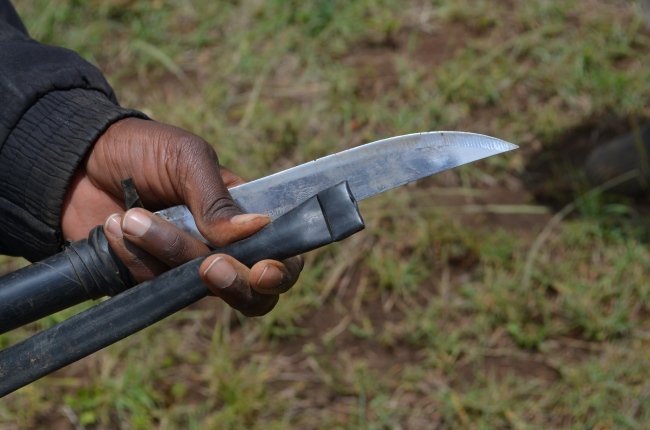
What I’ve learned about farming in Kenya thus far:
For the majority of subsistence farmers, every bit of it is manual, exhausting work. It takes patience and a lot of time. If you want to see crops, you have to wait for them. Women are paid less than men. Water is critical. It’s a balancing act of understanding soil deficiencies, when to weed, plant, spray for pests, how many people are required to do a piece of work, and what you can afford to pay them, and how to get the best market. At the end of the season, you hope for the best returns, and pray that whatever mistakes you have made, the lesson was learned for a return next time.
What we’ve accomplished at Rita Rose in the last few months:
We completed a successful beekeeping training to the great enthusiasm of our participants, women, men, and youth alike. In one part, we learned to make cough syrup from honey, lime, and an egg white, a product of value addition to sell along with pure honey. Our trainees received their own hives to manage as they manage the farm’s hives.
We’ve nearly completed an apiary, or house for the bees, that makes sense in our local context. Some of us on the farm management were ecstatic to watch an apiary just like ours featured on a local educational program for farmers on television last weekend.
We’ve constructed a second greenhouse, so that we dramatically increase our tomato production, and our sales to financially support farm operations. Tomatoes are particularly susceptible to pests and disease; with a greenhouse, we can provide quality tomatoes. Drip irrigation lines inside the greenhouse combat lack of rainfall.
What we hopeto see over the coming year:
In the coming year, our farm needs to provide food year-round for 30 people at the Kisumu Rescue Center. The center is a unique approach to the situation of orphans and vulnerable children in the area. Rather than an orphanage system, OLPS believes the best solution for such children is to be placed with an extended family member, or guardian who can adequately care for a child’s basic and psychological needs. The center provides a home for the child to stay until such a guardian can be found, and will offer social work and counseling services.
Our caregivers and their orphans and vulnerable children also need a dramatic increase in support for their food challenges. We’re working on modifying a drip irrigation kit so that some of them may use it at home to grow their own vegetables while using minimal water.
Our vision is to see Rita Rose Garden as a demonstration plot, so that those in the local community can come and see our hives, our fish ponds, our plots, and ask questions, and apply these strategies at home for their own sustenance, and especially to grow their incomes.
As we have closed 2013 and opened a new season for the farm, I want to express our tremendous gratitude for the support we have received at the farm over the last year. The things we have accomplished have been wonderful, and we will see the fruits, or veggies, of them for many years to come. I also ask that you continue to see the importance of our farm in fighting food poverty, and support us with a donation, or simply by sharing our story with your friends and family.
Please give here:
http://stayclassy.org/ritarose








 eople! I hope this message finds you happy and healthy.
eople! I hope this message finds you happy and healthy.